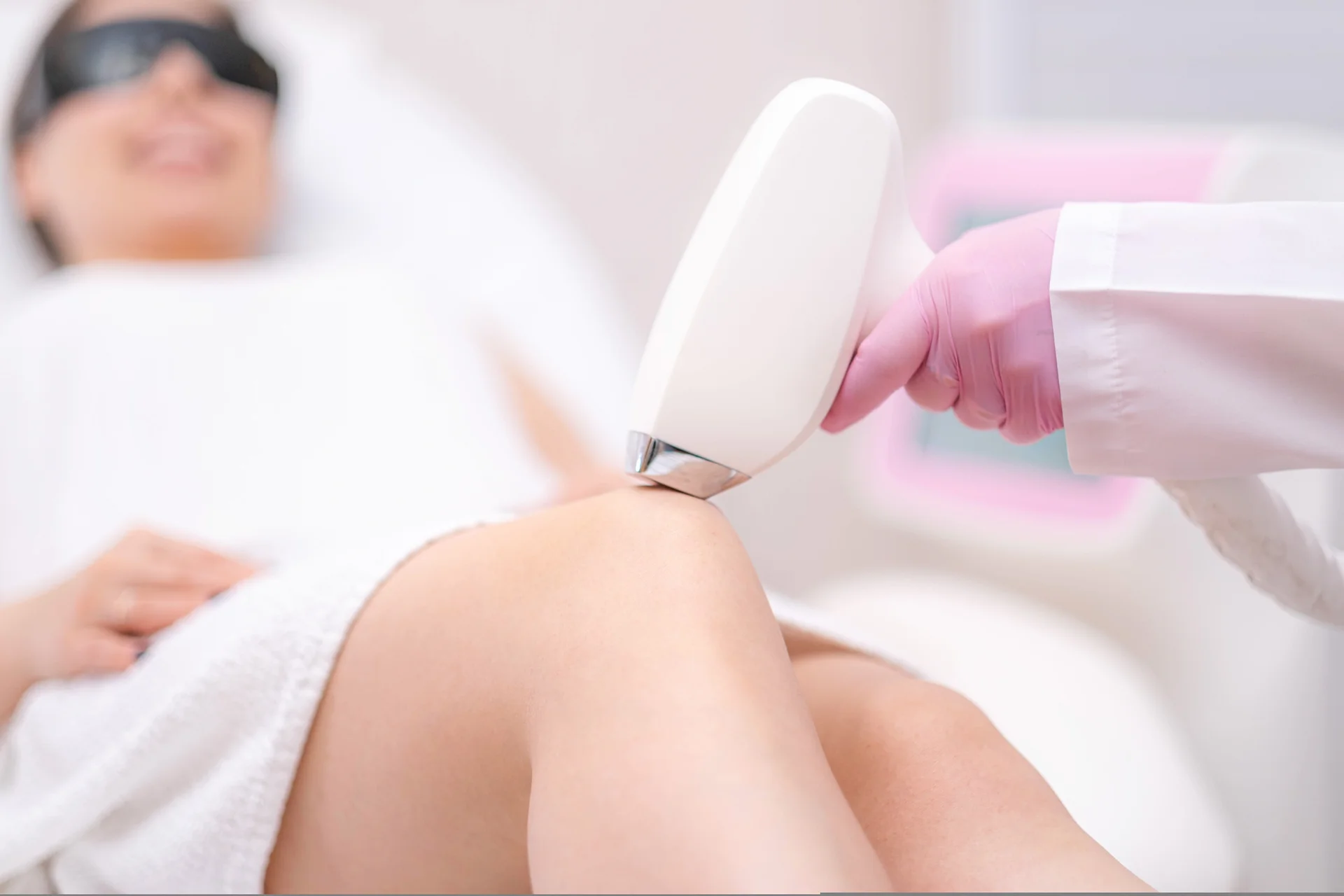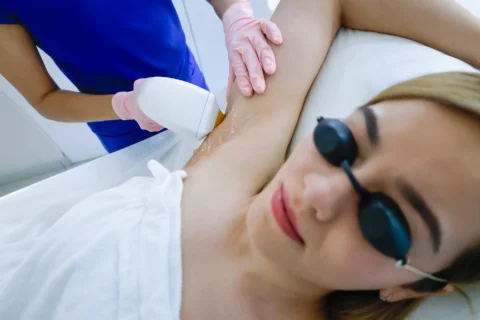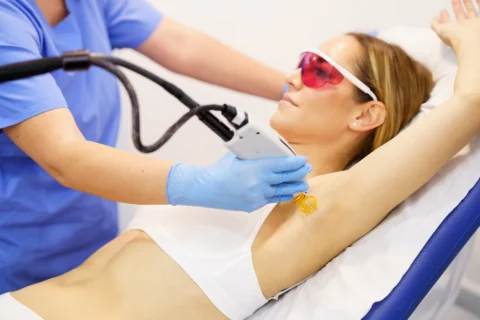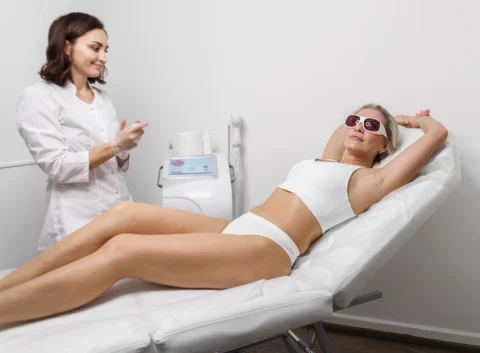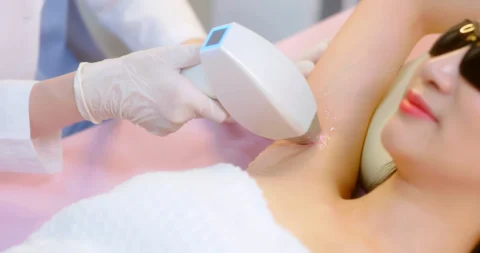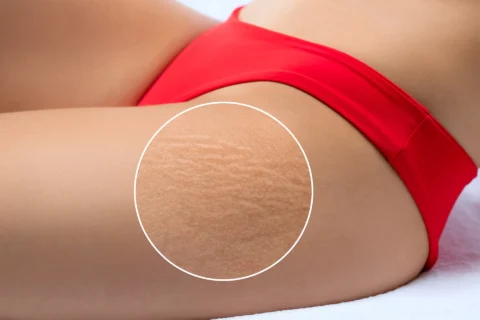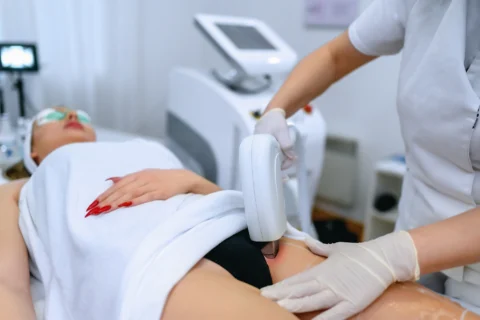Hyperpigmentation refers to the darkening of skin in certain areas caused by an increase in melanin production.
Melanin is the pigment responsible for skin color, and issues arise when excessive amounts are present. During laser hair removal, the targeted light energy can inadvertently stimulate surrounding melanocytes.
Let’s explore what occurs and the various factors that influence hyperpigmentation risk.
How does Laser Treatment Trigger Hyperpigmentation?
Laser and intense pulsed light devices used for hair removal aim to damage the melanin in follicles through selective photothermolysis.
However, the adjacent epidermis may also absorb fractions of light. Over time, this leads melanocytes to produce darker pigment clusters within the dermis and epidermis layers. While generally temporary, lasting discoloration can emerge in susceptible patients.
What Skin and Lifestyle Factors Impact Risk?
Individuals with darker natural skin tones expressing more eumelanin pigment are more prone to post-inflammatory dyspigmentation.
However, even light-skinned clients can experience some darkening if treatments are too closely spaced or proper preventative habits ignored. Hormonal variations throughout life stages may also impact melanin discharge tendencies.
Preventing Hyperpigmentation
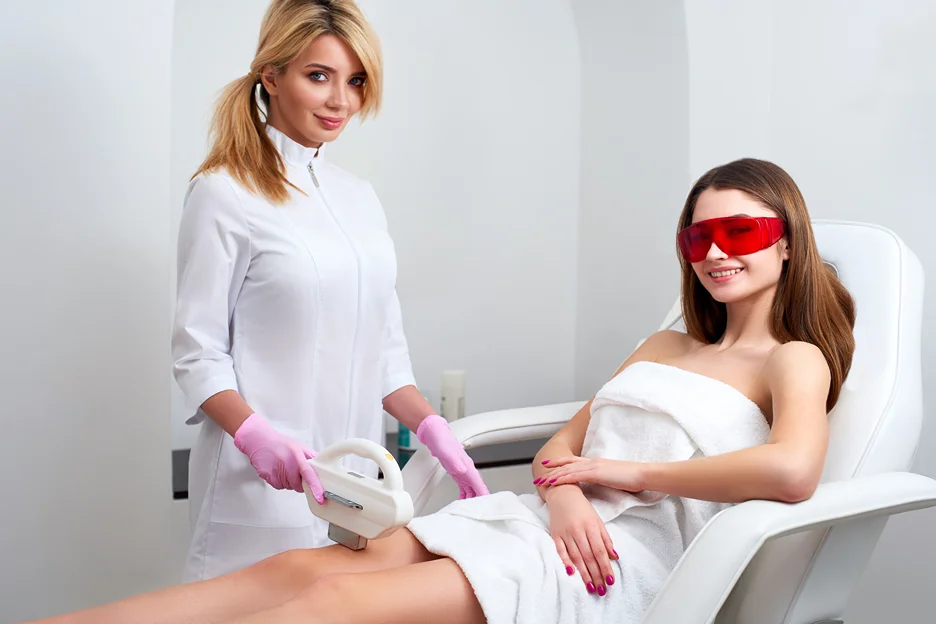
Protect Your Skin from UV Rays
Sun exposure severely exacerbates hyperpigmentation by stimulating excess melanogenesis. Consistently apply broad spectrum sunscreen with SPF 30 or higher before any outdoor activity.
Reapply every 2 hours and wear protective clothing/hats when practical. Monitor UV indexes and limit sun exposure during peak hours.
Follow Proper Healing Guidelines
Avoid extreme heat immediately following treatments to trap damaged melanocytes from exacerbating discoloration.
Moisturize treated regions regularly to accelerate healing without inducing pro-inflammatory reactions. Taking oral supplements containing antioxidants like vitamins A, C and E supports skin repair.
Consult with a Licensed Professional
Discuss any medical conditions, impending procedures or hormone-based therapies that could impact treatment tolerability or pigmentary response. Adapting the treatment protocol based on an individual’s characteristics maximizes comfort and outcomes.
Managing Mild Hyperpigmentation
Incorporate Brightening Topicals
Serums containing 4-hydroxyanisole (HA), kojic acid, azelaic acid, glycolic acid or licorice extract inhibit melanin biosynthesis for faded discoloration over weeks. Niacinamide, peptides, and antioxidants repair damage and unify skin tone. Application of 2% hydroquinone cream twice daily under guidance yields more defined results.
Consider Professional Peels or Lasers
For stubborn hyperpigmented macules, dermatologists may administer phytic acid, trichloroacetic acid (TCA) or glycolic acid chemical peels. Fractional laser resurfacing also stimulates collagen remodeling to refresh the epidermis from within. Always defer high-risk options to fully trained specialists.
When to Seek Medical Evaluation
See a board-certified dermatologist if homemade remedies prove insufficient after several months.
Deeper peel sessions, intense pulsed light (IPL), prescription-strength hydroquinone or oral anti-melanogenesis agents may combat severe, persistent or distress-inducing changes to pigmentation more aggressively without potential side effects. Integrated plans weighing risks versus benefits optimize long-term satisfaction.
FAQ on Hyperpigmentation From Laser Hair Removal
Q: What is hyperpigmentation?
A: Hyperpigmentation is a condition in which the skin becomes darker in certain areas due to an excess production of melanin, the pigment that gives color to our skin, hair, and eyes.
Q: How does laser hair removal cause hyperpigmentation?
A: Laser hair removal targets the hair follicles with a laser beam, but sometimes it can also affect the surrounding skin, leading to hyperpigmentation. This can occur due to various factors like sun exposure, hormonal changes, or skin damage.
Q: How can I prevent hyperpigmentation from laser hair removal?
A: To prevent hyperpigmentation, it is important to use sunscreen with at least SPF 30 on the treated areas before going out in the sun. Sunscreen helps protect the skin from further darkening caused by UV rays. Additionally, it is advisable to avoid sun exposure as much as possible, especially during the peak hours of the day.
Q: Are there any topical treatments that can help lighten hyperpigmentation?
A: Yes, there are topical treatments available that can help lighten hyperpigmented areas. Ingredients such as hydroquinone, kojic acid, and azelaic acid can inhibit melanin production and reduce the appearance of dark spots. These treatments should be used as directed and for the recommended duration.
Q: Can brightening serums be effective in reducing hyperpigmentation?
A: Yes, brightening serums containing ingredients like vitamin C or niacinamide can be effective in reducing the appearance of hyperpigmentation. These serums help to even out the skin tone and promote a brighter complexion. Consistent use over time can lead to visible improvements.
Q: What are some cosmetic treatments for hyperpigmentation?
A: Cosmetic treatments such as chemical peels and microneedling can be done to treat hyperpigmentation. However, it is important to note that these procedures should only be performed by licensed professionals.
They can help exfoliate the skin and stimulate collagen production, leading to a reduction in hyperpigmentation. Consult with a dermatologist to determine if these treatments are suitable for you.
Q: How long does it take for hyperpigmentation to fade?
A: The time it takes for hyperpigmentation to fade can vary depending on various factors such as the severity of the condition, individual skin type, and the selected treatment. It may take several weeks or even months for complete fading to occur. It’s important to be patient with the process and follow the recommended treatment plan.
Q: When should I consult a dermatologist for hyperpigmentation?
A: If the hyperpigmentation is severe, persistent, or causing significant distress, it is advisable to consult a dermatologist for guidance. They can evaluate your specific case and provide personalized treatment recommendations to help address your concerns effectively.
Conclusion
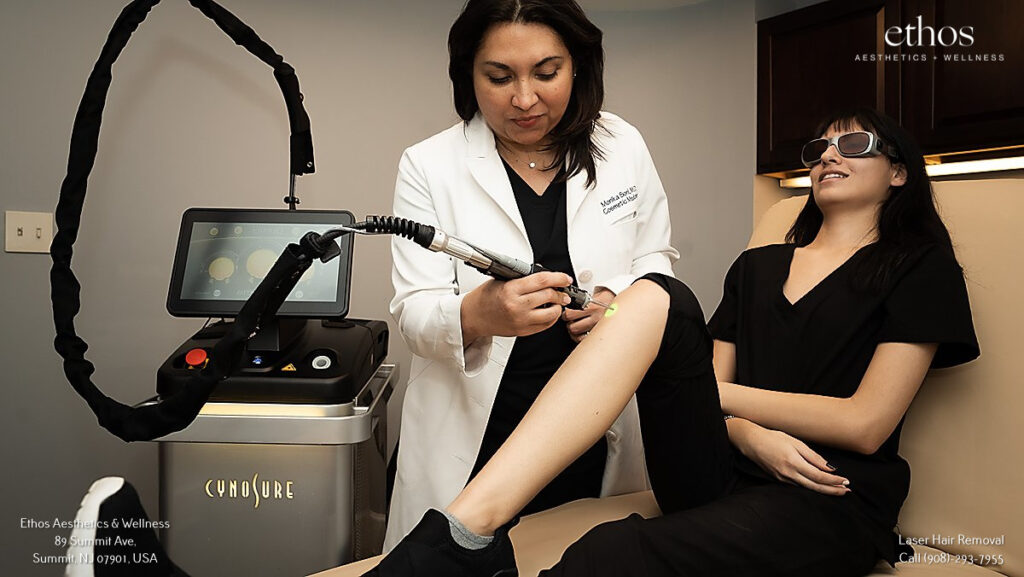
In conclusion, properly addressing hyperpigmentation necessitates diligent photoprotection habits alongside conscientious treatment selection and follow-through. Keep lines of consultation open with experienced practitioners accountable for your care and comfort. Implementing knowledge of evidenced-based prevention and management tactics empowers smoother laser hair removal outcomes.

